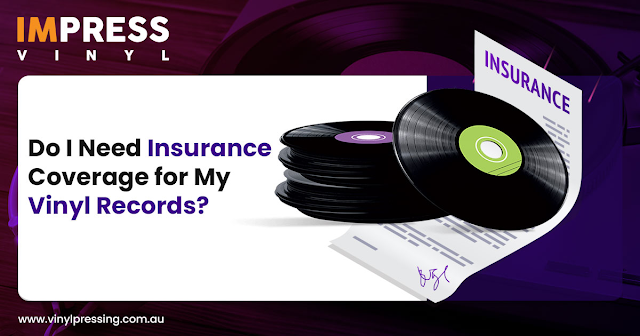Is Insurance Really Necessary for Your Vinyl Records
Vinyl records, with their warm analog sound and timeless appeal, have found a dedicated fanbase in the resurgence of the music industry. Collecting vinyl is more than a hobby; it's a passion that connects music enthusiasts with the rich history of recorded sound. As collectors amass their prized vinyl libraries, the question of whether insurance is a necessity often looms. In this blog, we'll explore the arguments against the need for vinyl record insurance and whether the risks outweigh the benefits.
The Emotional Connection: Vinyl record collectors often argue that the true value of their collections goes beyond monetary worth. The emotional connection forged with each record, the nostalgia evoked by album covers, and the tactile experience of handling vinyl contribute to a unique and personal relationship with the collection. Some argue that insurance, with its focus on financial protection, undermines the intrinsic value that the collection holds for the collector.
Emotional, Not Financial Investment:
Opponents of vinyl record insurance contend that their collections are driven by passion, not profit. Unlike other investments, the primary motivation for collecting vinyl is often the sheer love of music and the desire to own a physical piece of it. In this view, insuring a vinyl collection may seem like an unnecessary expense, as the emotional connection cannot be quantified in financial terms.
Replacement Cost Overrated:
Critics of vinyl insurance question the emphasis on replacement cost coverage. They argue that the sentimental value of a specific record, perhaps a gift from a loved one or a memento from a special event, cannot be equated with its market value. In their eyes, the unique memories associated with certain records are irreplaceable, rendering the financial compensation inadequate.
The Low Probability of Loss: Another argument against vinyl record insurance is based on the perception that the likelihood of a significant loss is minimal. Vinyl collectors often take great care in preserving their collections, storing them in controlled environments and handling them with the utmost caution. This careful curation, they argue, reduces the probability of loss due to accidents, theft, or natural disasters.
Safe Storage Practices:
Vinyl enthusiasts who choose not to insure their collections often pride themselves on meticulous storage practices. Climate-controlled environments, protective sleeves, and careful handling are seen as effective measures to mitigate the risk of damage. They argue that these preventive steps make insurance redundant.
Unlikely Scenarios:
Some collectors believe that the scenarios requiring insurance, such as theft or natural disasters, are statistically unlikely. In their view, the low probability of such events occurring makes insurance an unnecessary precaution. They may opt to take their chances, trusting in their ability to safeguard their collections through responsible ownership.
The Cost-Benefit Analysis: For many vinyl collectors, the decision not to insure their collections boils down to a cost-benefit analysis. The perceived low risk of loss, coupled with the potential financial burden of insurance premiums, leads some to conclude that the cost outweighs the benefits.
Affordability Concerns:
Vinyl record insurance, like any other form of coverage, comes with a cost. Some collectors argue that the money spent on insurance premiums could be better used to expand their collections, acquire rare records, or invest in high-quality audio equipment. In their view, the financial outlay for insurance doesn't align with their priorities as collectors.
Alternative Investments: Opponents of vinyl insurance often divert their resources to alternative investments, such as upgrading their audio setups or attending live music events. They argue that these experiences and improvements contribute more to their overall enjoyment of music than the financial protection provided by insurance.



Comments
Post a Comment